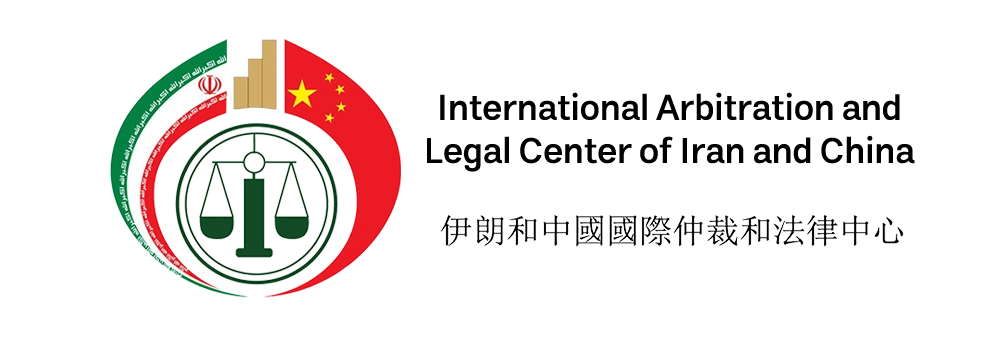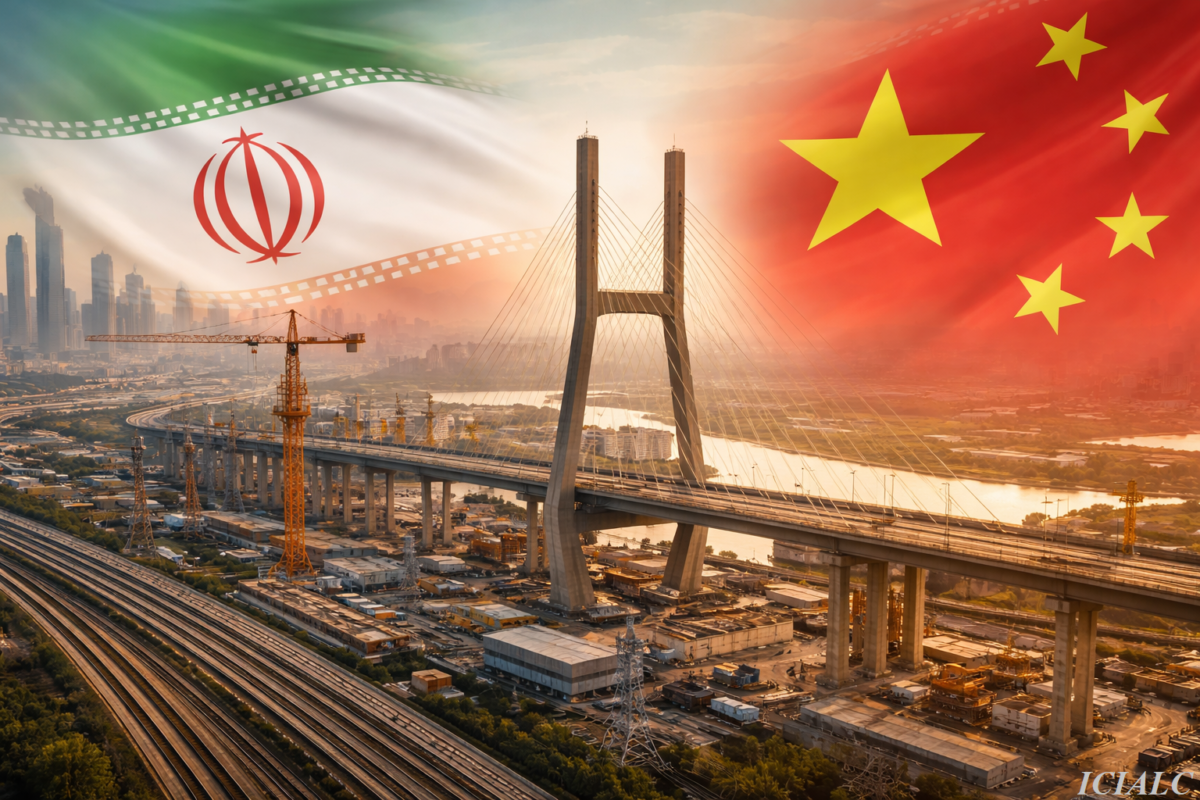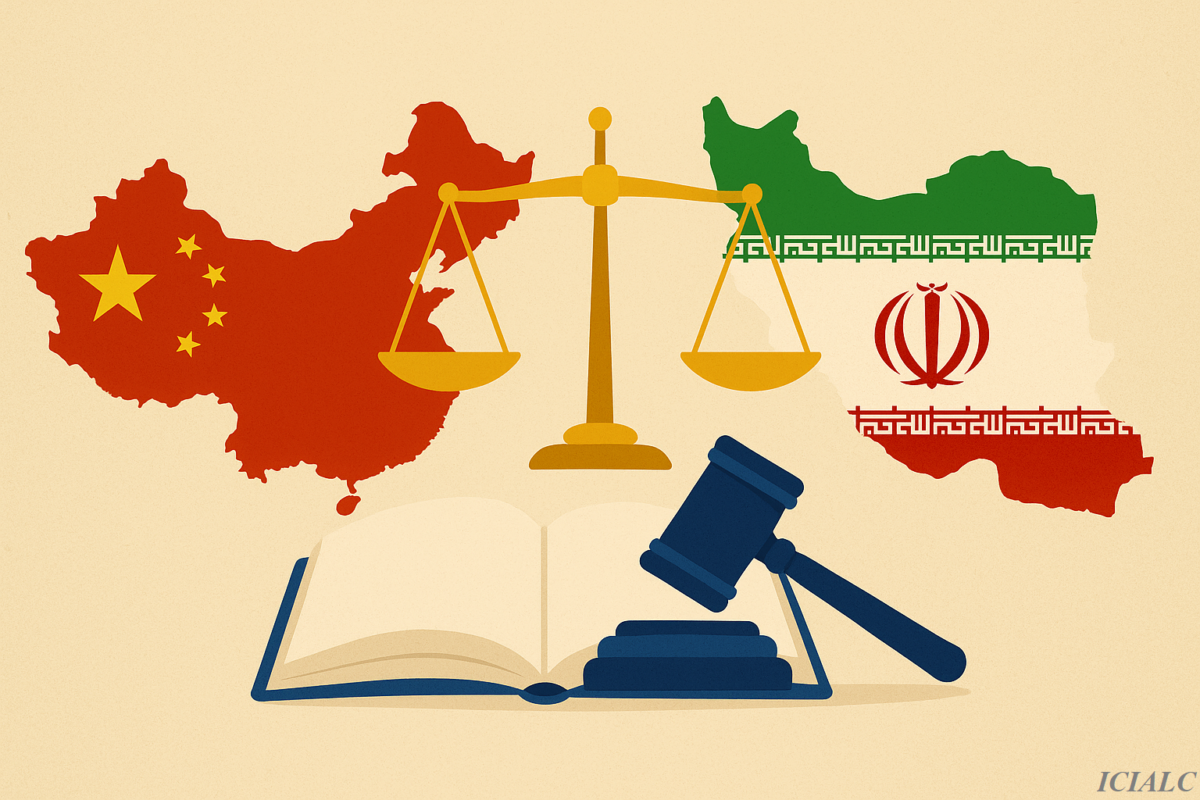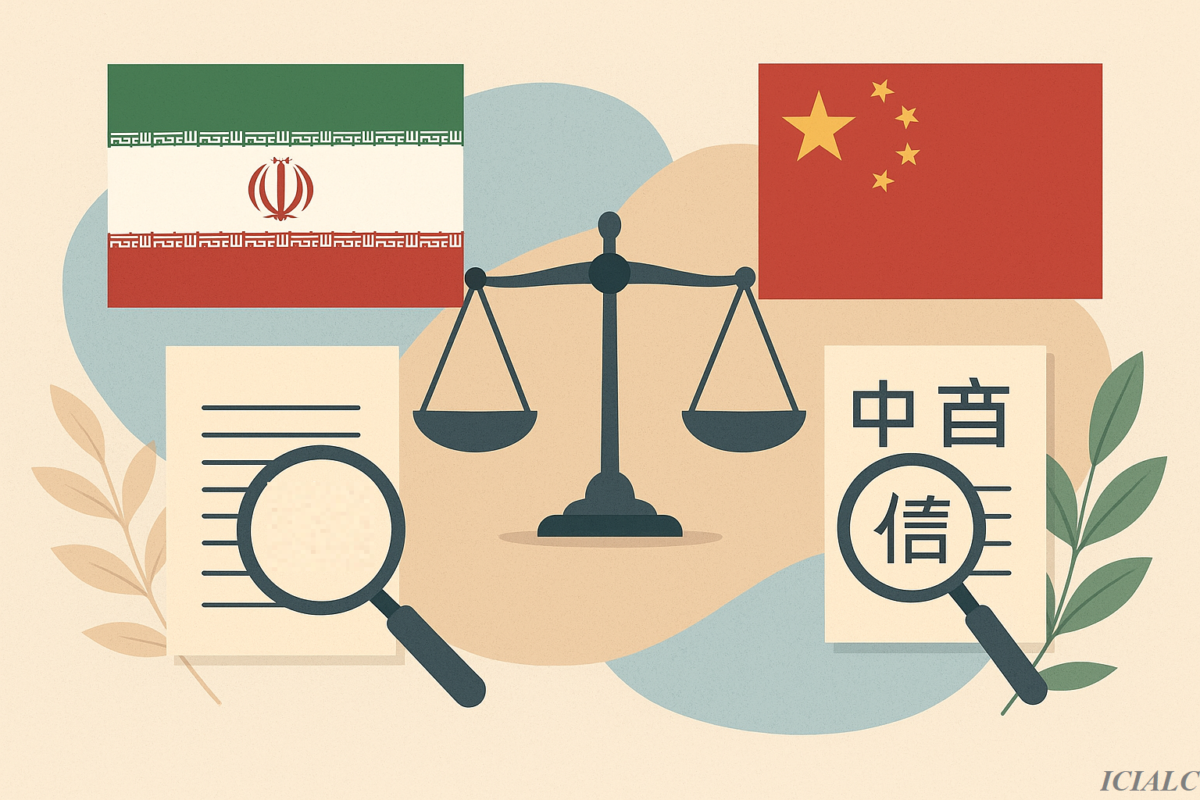As the world’s second-largest economy, China has always been an attractive destination for foreign investors. However, legal complexities and various hurdles have sometimes made investing in the country challenging. In 2025, China implemented new reforms to its foreign investment legislation, aiming to provide a more favorable and transparent environment for foreign investors, particularly Iranians. In recent years, and especially in 2025, China has taken significant steps to attract foreign investment through extensive legal reforms. These changes have created new opportunities for Iranian investors. This article analyzes the new laws and their impact on Iranian investment in China.
Reform of the Foreign Investment Law (2025)

In 2025, China undertook broad reforms to its Foreign Investment Law to attract greater foreign investment and boost its economic competitiveness. These reforms focus on reducing restrictions, increasing transparency, and protecting investors’ rights, thus opening up new avenues for Iranian and other foreign investors. The major pillars of these reforms include:
Removal of Ownership Restrictions in Certain Industries
A key change has been the elimination of foreign ownership restrictions in sensitive and strategic industries. Previously, foreign investors were compelled to partner with domestic companies and could not establish wholly owned entities. Under the new reform:
Foreign investors can now own outright companies in many sensitive sectors, including technology, advanced equipment manufacturing, and renewable energy.
This move increases China’s appeal to foreign investors and ensures complete strategic and managerial control over their ventures.
For Iranians seeking long-term investment, this enables precise financial and strategic planning, reducing risks associated with mandatory partnerships.
Streamlining Administrative Procedures and Reducing Bureaucracy
The 2025 reform emphasizes minimizing administrative hurdles and facilitating company establishment:
Company registration and licensing procedures have been significantly simplified, with fewer interactions needed with different agencies.
Creation of a “One-Stop Service” for foreign investors, centralizing registration, licensing, and legal notifications.
Faster review times and increased transparency allow Iranian investors to enter the Chinese market with greater confidence and speed.
Intellectual Property Rights Protection
Protecting inventions, brands, and intellectual property assets has been a primary concern for foreign investors in China. The reform has introduced important changes in this area:
Enhanced regulations for patent and trademark registration and protection, preventing unauthorized use or copying of products and technologies.
Fast and effective legal recourse for foreign investors in cases of IPR infringement, with direct support from the Chinese government and judicial agencies.
Legal incentives for R&D-intensive companies, including protection for new inventions and innovative technologies.
Practical Implications for Iranian Investors
With these reforms:
Iranian investors can enter sensitive industries with full ownership and management control.
Faster, more transparent administrative processes will reduce costs and save time.
Stronger intellectual property protections boost market confidence and decrease investment risks in technology and innovation projects.
The “2025 Action Plan” for Foreign Investment Stabilization

To further attract foreign investment and foster a stable, competitive business environment, China introduced the “2025 Action Plan.” This plan comprises a collection of policies and incentives aimed at easing entry for foreign investors, reducing investment risks, and enhancing economic productivity. Its key features include:
Fiscal Incentives
Among the most enticing aspects are tax reductions and simplifications for foreign companies:
Investors in certain special economic zones and free-trade zones enjoy partial or full tax exemptions for the initial years.
Lower corporate income tax and VAT rates enhance the attractiveness for investments in target sectors such as technology, new energy, and advanced manufacturing.
These incentives promote long-term investment and detailed financial planning for foreign firms.
Simplified Company Establishment
The plan pays special attention to reducing bureaucracy and accelerating company setup processes:
All procedures for company registration, licensing, and branch establishment are performed with fewer administrative visits and simplified forms.
The “One-Stop Service” for foreign investors ensures all legal and administrative steps are managed through a centralized authority.
These streamlined processes, especially beneficial for Iranian investors, facilitate a quick market entry and lower administrative costs and time.
Support for Research and Development (R&D)
Another pivotal aspect is encouraging innovation and investment in R&D:
Financial facilities and credits are provided to R&D-focused companies, including grants, low-interest loans, and tax exemptions.
Support for innovative projects, advanced technology, and green industries enables foreign investors to produce high value-added goods and services in China.
These policies strengthen company competitiveness, enhance investor confidence, and improve long-term investment security.
Practical Implications for Iranian Investors
With the implementation of the “2025 Action Plan”:
Iranians can benefit from tax incentives and special facilities in free zones and target industries.
Streamlined administration and one-stop services enable rapid company setup and market entry.
R&D support provides opportunities for investment in innovative, high-tech projects, boosting value addition and reducing economic risks.
Private Sector Protection Law (2025)

In 2025, China enacted a comprehensive Private Sector Protection Law to strengthen the private sector’s role in the economy. This law supports both domestic and foreign investors, enabling them to operate in a safer, more transparent, and competitive environment that safeguards their property and capital. The salient features include:
Enhanced Private Property Rights
A main goal is to safeguard companies’ and individuals’ assets:
Strong legal protection for real estate, capital, equipment, and inventions of businesses and individuals.
Prevention of unlawful acquisition or baseless claims by government or third parties.
Guarantees for foreign investors—including Iranians—that their investments in China enjoy high legal certainty.
This increases investor trust and encourages long-term investment.
Improving Market Competitiveness
This law also aims to reduce state monopolies and boost competition:
Limits on large state-owned enterprises’ monopolies and encouragement of SMEs to enter markets.
Measures for healthy and transparent competition, especially in manufacturing, technology, and services.
Increased market efficiency and lower consumer prices through greater competition.
For Iranians, this means fewer unwarranted barriers to market entry and easier competition with local firms.
Greater Legal Transparency
An important pillar is better legal and regulatory transparency:
Publication of precise, accessible information on laws, regulations, and economic policies.
Clear guidelines for investors regarding tax, property rights, and company registration.
Enhanced transparency reduces legal risk and misunderstandings, simplifying the investment process.
Practical Implications for Iranian Investors
With this law:
Iranian investors benefit from complete legal protection for their holdings and investments.
Healthy competition creates more opportunities to expand businesses and enter new industries.
Legal transparency allows for more accurate planning and risk reduction stemming from regulatory unawareness.
Overall, this law ensures a safe, transparent, and stable environment for foreign and domestic investors, making long-term investments in China more attractive.
Opportunities and Challenges for Iranian Investors

While China’s vast market and supportive government policies present considerable opportunities for Iranians, challenges and risks remain that require careful attention. Here’s an overview:
Opportunities
Access to China’s Massive Market
With over a billion people and the world’s second-largest economy, China offers immense consumer markets:
Iranian investors can offer products and services to a broad base of potential customers.
Particularly appealing for technology, manufacturing, new energy, and consumer goods sectors.
Sustained economic growth and high demand facilitate increased sales and brand expansion for foreign investors.
Government Support
China provides various incentives to attract investment:
Tax reductions and exemptions for foreign companies, especially in special economic zones and free-trade areas.
Loans and credit facilities for key sectors and emerging technologies.
Strong legal protection for intellectual property, reducing risks from imitation or infringement.
These policies help Iranian investors operate in China with greater security and lower costs.
International Collaboration and Advanced Technology Access
Investing in China gives access to international partnerships and cutting-edge technology:
Iranian investors can learn from large Chinese and multinational firms.
Collaboration enhances product quality, competitiveness, and business expansion.
Entry into China’s international trade networks opens doors to other Asian and global markets.
Challenges
Legal Complexity
One key challenge is navigating China’s unique legal and regulatory environment:
Investors must be familiar with the new foreign investment, intellectual property, tax, and company registration laws.
Lack of legal awareness may cause financial loss or business disruption.
Hiring local legal and financial advisors is strongly recommended to mitigate legal risks.
Political and Economic Risks
Foreign investment always involves some risk:
Sanctions, international policy changes, and global economic fluctuations could impact Iranian businesses in China.
Unexpected regulatory changes or import/export restrictions are additional concerns.
Investors should plan finances and strategy carefully to manage political and economic risks.
Distinct Business Culture
Cultural and commercial differences pose additional challenges:
Negotiation style, business management, and marketing approaches differ from Iran.
Not understanding these differences may result in miscommunication or unsuccessful partnerships.
Learning Chinese business etiquette, market practices, and informal rules is essential for success.
Practical Recommendations for Iranian Investors
China offers major investment opportunities, but success requires strategic planning and application of sound measures.
Key recommendations:

Engage Qualified Local Legal and Financial Advisors
Working with experienced local consultants is vital to risk management:
Local advisors guide investors through China’s new laws, tax regime, company setup, and IP regulations.
They can expedite and accurately handle administrative and legal procedures, avoiding costly errors.
Advisors may also identify commercial opportunities and target markets for different sectors.
Target Incentivized Industries and Free Zones
Choosing attractive industries and economic zones increases investment success:
Investors should identify sectors where China offers fiscal, credit, and legal incentives.
Focus on free zones and industrial parks with special privileges for foreign investment reduces costs and enhances return.
This approach is especially effective for Iranians seeking low-risk, high-yield entry into the Chinese market.
Select Appropriate Legal Structures
Choosing the right legal structure is crucial:
Wholly Foreign Owned Enterprises (WFOEs) enable full ownership and managerial control.
WFOEs minimize legal and administrative risks associated with mandatory local partnerships.
These vehicles facilitate access to China’s fiscal and legal benefits and suit investments in innovative and high-tech sectors.
Long-Term Planning and Risk Management
Careful planning and risk management are essential for success:
Investors should assess political, economic, and cultural risks to shape their strategies and operations.
Employing exit strategies and liquidity management can reduce exposure to unexpected risks.
Building a network of local and international partners and advisors allows for fast decision-making in facing challenges.
Conclusion
China’s latest investment law reformslifting ownership limits, simplifying administration, enhancing intellectual property protections, and offering fiscal incentives—provide remarkable opportunities for foreign investors, including Iranians. These changes have made China not only the largest consumer market in the world but also a secure, transparent, and competitive environment for long-term investment.
For success, Iranian investors must:
Thoroughly acquaint themselves with China’s new laws and administrative regulations,
Rely on qualified local legal and financial advisors,
Carefully select target industries and incentive-rich free economic zones,
Choose suitable legal structures such as WFOEs to minimize risks.
By observing these principles and leveraging China’s offered opportunities, Iranian investors can confidently enter the Chinese market, expand their investments, and benefit from the country’s sustainable economic growth.
For further information and expert investment guidance in China, it is recommended to contact specialists at the Iran–China International Arbitration and Legal Center for professional support in ensuring a smooth, secure investment journey.












